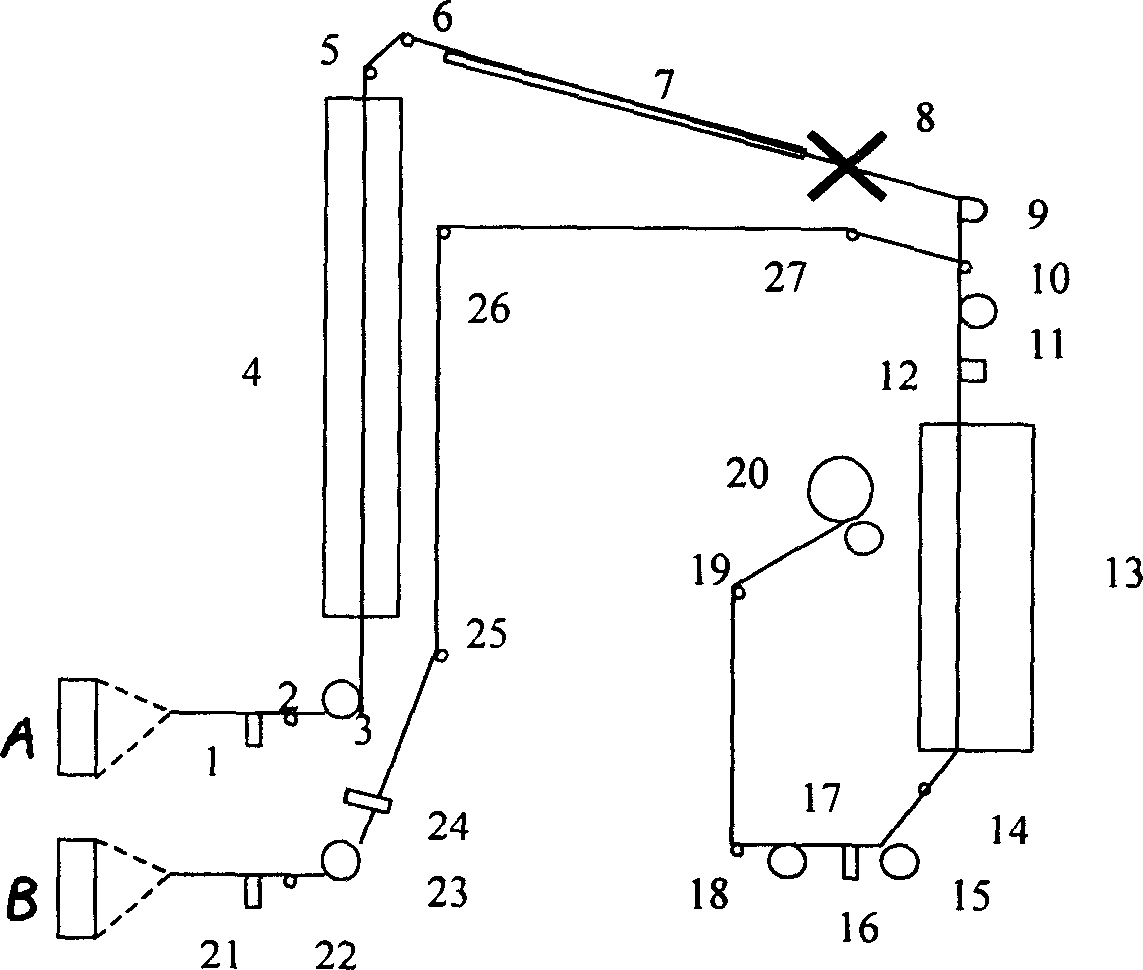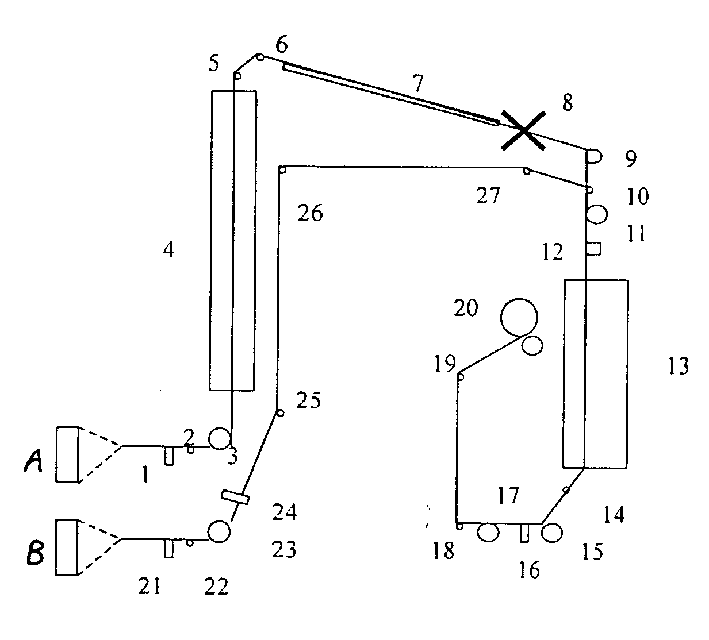Producing method for superfine bi-shrinkable fibre false twist composite yarn
A technology for shrinking fibers and manufacturing methods, applied in textiles, papermaking, adhesives, etc., can solve the problems of unstable conveying tension, increased shrinkage fluctuation range, and increased production costs, and achieve good drape and richness, and shrinkage. The effect of small scope and increased processing and production speed
- Summary
- Abstract
- Description
- Claims
- Application Information
AI Technical Summary
Problems solved by technology
Method used
Image
Examples
Embodiment Construction
[0020] see figure 1 Shown, the manufacture method of ultrafine double shrinkage fiber false-twisted composite yarn of the present invention, it comprises;
[0021] The raw material cake of ultra-fine denier yarn is used as the first raw yarn A, and the yarn is drawn out from the raw yarn frame, and passes through the first yarn cutter 1, the first micro-motion yarn guide 2, and the first wire feeding roller 3 in sequence. Conveying and entering the first hot box 4, the filaments in the first hot box 4 are subjected to stretching and twisting deformation under the heated state to form deformed yarns, and then guided by the skid wire guides 5 and 6, and cooled by the cooling plate 7 Finally, enter the false twister 8 for false twisting, and form a superfine filament with a monofilament fineness (dpf) of less than 0.3D and a boiling water shrinkage of less than 6%;
[0022] The high-shrinkage silk cake is used as the second raw material silk B, and the silk is guided by a wire f...
PUM
 Login to View More
Login to View More Abstract
Description
Claims
Application Information
 Login to View More
Login to View More - R&D
- Intellectual Property
- Life Sciences
- Materials
- Tech Scout
- Unparalleled Data Quality
- Higher Quality Content
- 60% Fewer Hallucinations
Browse by: Latest US Patents, China's latest patents, Technical Efficacy Thesaurus, Application Domain, Technology Topic, Popular Technical Reports.
© 2025 PatSnap. All rights reserved.Legal|Privacy policy|Modern Slavery Act Transparency Statement|Sitemap|About US| Contact US: help@patsnap.com


